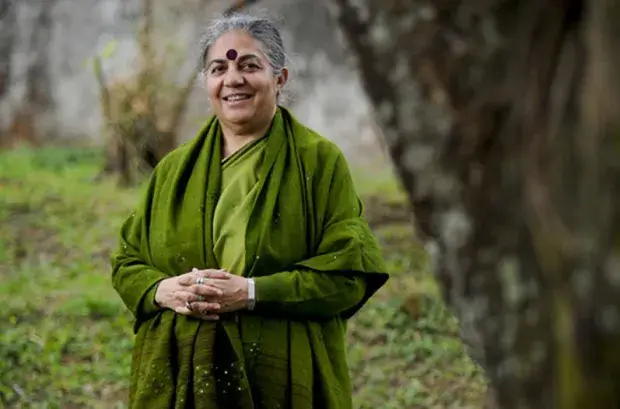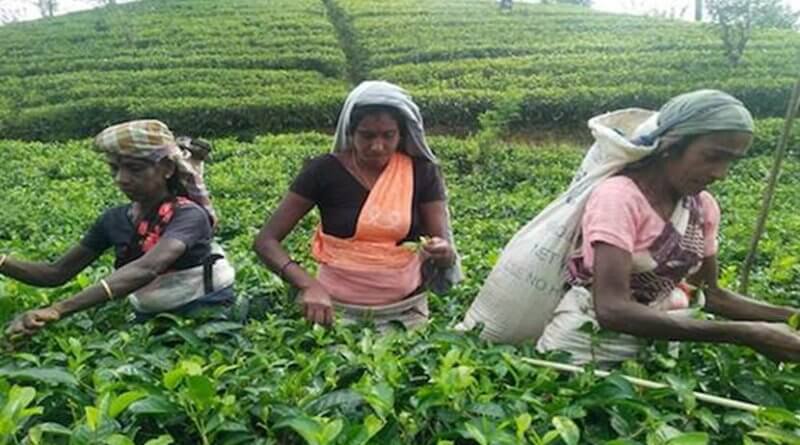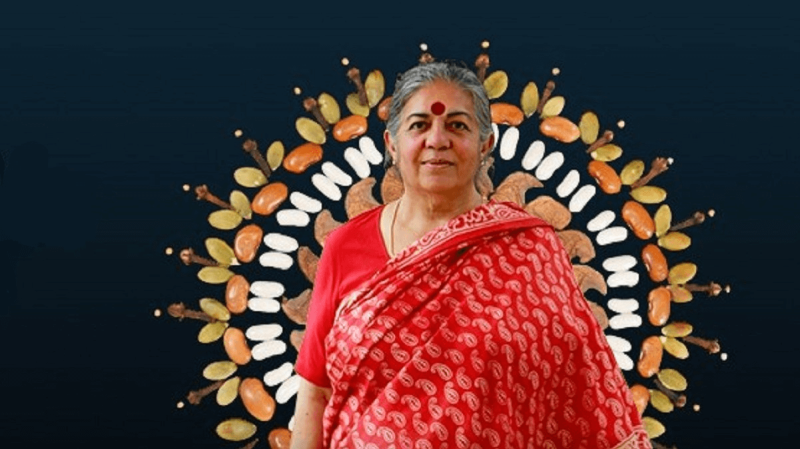The crisis which had been brewing for years due to political corruption, nepotism, and right-wing politics that weakened the country’s democracy was accelerated in 2019 after suicide bombings significantlly impacted the island nation’s tourism industry. This weakened the Sri Lankan Rupee and made it more difficult for the government to import essential goods. The pandemic dealt a further significant shock to Sri Lanka’s economy and decimated the already struggling tourism industry. Still reeling from the damage caused by COVID-19 in the spring of 2021, President Rajapaksa made the disastrous decision to ban synthetic fertilizers and pesticides citing health concerns and stating that such industrial farming methods went against the country’s heritage of “sustainable food systems”. However, like so many political decisions, the reality is that it was made for monitarial reasons. In 2020, Sri Lanka imported foreign fertiliser worth $259 million, representing 1.6% of the country’s total imports. The Rajapaksa government believed that the 2021 import bill could potentially total in the range of $300-$400million – money it could use towards increasing imports of other goods helping to quash the then crisis. The ban was imposed through an extraordinary gazette notification following the Cabinet endorsement of the plan under the theme of “Creating a Green Socio-economy with Sustainable Solutions for Climate Change”. Overnight, millions of farmers were forced to go organic which proved to be disastrous, just as Sri Lankan scientists and agriculture experts had warned.

Agricultural scientists and professionals representing universities, research stations, and other agriculture-related organizations urged the Rajapaskse government to rethink their strategy. In their report titled “Development of eco-friendly sustainable farming systems in Sri Lanka”, they suggested gradually decreasing the use of agrochemicals rather than an outright ban by implementing a proper system to monitor excess usage and increase the production of organic fertilisers within the country. They correctly predicted that the government’s plan would lead to a major loss of production in almost all sectors in Sri Lankan agriculture, with a considerable drop in yield (25-100%) for several important crops. Note that similar trends have already been observed in parts of the world where fertilisers have been replaced with organic manure. They were particularly concerned about the potential impact the ban would have on rice and tea, one a staple food and the other very important foreign exchange earner of the country. They stressed that the latter had already lost part of its global market due to fierce global competition and the ill-thought-out ban of glyphosate in 2015.

When a top Sri Lankan agricultural government advisor publicly raised concerns about the ban, he was sacked from his position. Professor Buddhi Maramb, who has worked in the Department of Crop Science Faculty of Agriculture at the University of Peradeniya for over 33 years, believed that the ban would threaten Sri Lanka’s food security. He cautioned that crop failure would force the government to import food at a time when money printing had created a shortage of U.S. dollars.
“If I don’t speak out, I will also be responsible for the decline in agriculture in the future,” – Professor Buddhi Maramb
“They need to correct the course immediately. Do not forget, food security is national security. We should never tolerate any action that negatively affects our food security.” -Professor Buddhi Maramb
In an article titled “A tragedy of relying on misinformation”, he predicted that Sri Lanka – like Bhutan in their failed attempt to go organic – will likely have to import a major portion of basic food needs. Bhutan, who had the ambitious goal of being the world’s first organic nation by 2020, discovered the hard way a substantial yield gap between conventional and organic agriculture despite the country’s low reliance on agrochemical inputs. On average, organic crops yields were 24% lower than conventional yields resulting in substantial losses in welfare and negative implications for food security.

Then almost pointing the finger at the likes of Vandana Shiva Maramb, said the following…

Unfortunately the Sri Lankan government did not listen to their own experts, instead preferring to hear what they wanted to hear from conspiracy theorists and well-fed western ideologies. The overnight agrochemical ban was catastrophic, causing rice production alone to drop 20% in the six months after it was implemented. Sri Lanka, which had been self-sufficient in rice production, suddenly found itself having to spend $450 million on rice imports – much more than the $400 million that would have been saved by banning agrochemical imports. Tea production, the country’s biggest export, fell by 18%, forcing the Sri Lankan Government to spend hundreds of millions on subsidies and compensation to farmers in an effort to make up for the loss of productivity.
The blinkered organic rollout ironically accelerated an economic crisis, forcing half a million people back into poverty and lost Sri Lanka its food security. Whilst synthetic fertilisers and pesticides cause a host of environmental and public health problems, which is what we are told inspired the ban. Their use has to be weighted against the consequences brought to bear by crop yield is: hunger, decreased export income, increased deforestation, and if banned outright, as Sri Lanka has shown, political crisis. Synthetic fertilisers and pesticides do what they are designed to do, allowing farmers to grow more food on less land which is critical for small developing countries like Sri Lanka that rely on agriculture for both sustenance and export income. As Sri Lanka gets richer, it will be more able to implement stronger environmental regulations and practices without sacrificing economic growth. Environmental and public health will be prioritized without millions going hungry, but the current crisis – made worse by the forced organic transition – has made that day further away.

Moving away from an agrochemical-heavy food system is a goal not just for Sri Lanka, but for all of us. It is imperative that we continue to strive towards a truly sustainable agricultural system without compromising the ability for current or future generations to meet their needs. However the harsh reality is that at this moment in time, no such perfect system exists, but there are ways to minimize the effects of agrochemicals without abandoning them altogether. The Sri Lankan organic debacle underscores the importance of listening to experts and not self-serving ideologies like Vandana Shiva who told the Rajapaksa government what they wanted to hear.
The more I read, the more apparent it becomes that the Sri Lankan government retroactively sought the advice of a fanatic like Vandana after already deciding to blanket ban synthetic fertilisers and pesticides. They needed a talking head and Vandana, never missing an opportunity for self promotion, jumped at the opportunity to spit poison at technology that has taken so many from the brink of starvation. The government chose to ignore the warnings of its own experts in favor of Vandana who has no formal academic training in nutrition, toxicology, biology, agriculture, plant breeding, or economics because she told them exactly what they wanted to hear; that organic farming can save the Sri Lankan government money. They allowed her to publicly quote the conclusions of fraudulent research papers and to perpetuate myths about kidney disease which had already caused immense damage only 6-years prior unopposed. They did this because they wanted to fool their own people into believing that this ban was in their best interest and, not simply as previously stated, to save money on imports.
The policy was applied overnight, yet Vandana months later would confidently but incorrectly state that it would be gradually phased in over a 10 year period. This ignorance of the situation and the struggle of the Sri Lankan people shows a blatant lack of interest from Vandana, who since the ban was overturned had been more concerned with the damage to her own reputation than the plight of the Sri Lankan people. This is because Vandna is to the organic industry what Ronald Macdonald is to fast food – a brand mascot. She is as synthetic as the fertilisers and pesticides she helped get banned with every posture, every expression, every word strategically choreographed to meet the demands of a market needing a conduit for their hatred, outrage, and ignorance. Although disingenuous, for people who can both choose and afford the premium organic produce there is no real issue. However as Sri Lanka has shown the world when Vandana pushes the same elite western marketing material to countries whose economies are still based largely on agriculture, we see the true dark side of organic farming.
Myles Power is a chemist from the North East of England, operates the Youtube channel powerm1985, and is a founding member of the podcast The League of Nerds.
A version of this article was posted at MylesPower.co.uk and is used here with permission. Follow out Myles on Twitter @powerm1985































